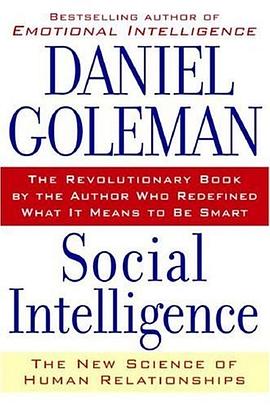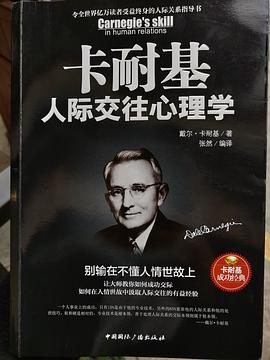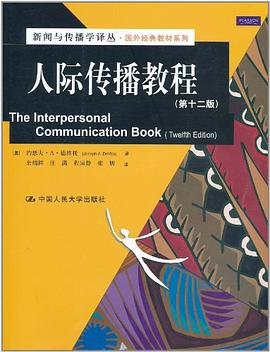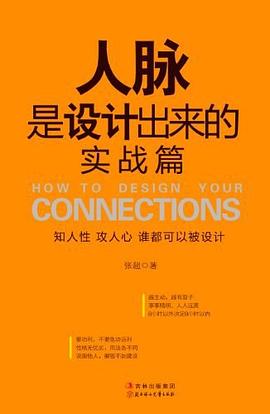
具體描述
Emotional Intelligence was an international phenomenon, appearing on the New York Times bestseller list for over a year and selling more than five million copies worldwide. Now, once again, Daniel Goleman has written a groundbreaking synthesis of the latest findings in biology and brain science, revealing that we are “wired to connect” and the surprisingly deep impact of our relationships on every aspect of our lives.
Far more than we are consciously aware, our daily encounters with parents, spouses, bosses, and even strangers shape our brains and affect cells throughout our bodies—down to the level of our genes—for good or ill. In Social Intelligence, Daniel Goleman explores an emerging new science with startling implications for our interpersonal world. Its most fundamental discovery: we are designed for sociability, constantly engaged in a “neural ballet” that connects us brain to brain with those around us.
Our reactions to others, and theirs to us, have a far-reaching biological impact, sending out cascades of hormones that regulate everything from our hearts to our immune systems, making good relationships act like vitamins—and bad relationships like poisons. We can “catch” other people’s emotions the way we catch a cold, and the consequences of isolation or relentless social stress can be life-shortening. Goleman explains the surprising accuracy of first impressions, the basis of charisma and emotional power, the complexity of sexual attraction, and how we detect lies. He describes the “dark side” of social intelligence, from narcissism to Machiavellianism and psychopathy. He also reveals our astonishing capacity for “mindsight,” as well as the tragedy of those, like autistic children, whose mindsight is impaired.
Is there a way to raise our children to be happy? What is the basis of a nourishing marriage? How can business leaders and teachers inspire the best in those they lead and teach? How can groups divided by prejudice and hatred come to live together in peace?
The answers to these questions may not be as elusive as we once thought. And Goleman delivers his most heartening news with powerful conviction: we humans have a built-in bias toward empathy, cooperation, and altruism–provided we develop the social intelligence to nurture these capacities in ourselves and others.
From the Trade Paperback edition.
用戶評價
##當我們以自我為中心時,我們遇到的問題就會越來越多,自我封閉就會越來越嚴重,我們的世界就會越來越小。而當我們關注他人時,我們的世界就會越來越豐富多彩,我們自己的問題就會顯得渺小,而且我們的交往能力可以得到加強,從而引發幫助他人的善舉。
評分##** disclaimer: 再次重申我也沒查字典,沒仔細研究術語到底怎麼翻譯的,如果不清楚我就中英文都加瞭,希望不影響閱讀。 這本書非常深刻的描述瞭人際關係對自己和對其他人的多方麵影響。 第一部分:人腦結構決定瞭人的社會性。人天性中決定瞭對其他人的細微反應都能本能的捕...
評分 評分##太理論化, 沒耐性看完...
評分##當我們以自我為中心時,我們遇到的問題就會越來越多,自我封閉就會越來越嚴重,我們的世界就會越來越小。而當我們關注他人時,我們的世界就會越來越豐富多彩,我們自己的問題就會顯得渺小,而且我們的交往能力可以得到加強,從而引發幫助他人的善舉。
評分丹尼爾.戈爾曼作為當前情商研究的專傢,這本齣版於06年的社交商一書更多的把焦點放在《情商EI》一書中的同理心和人際關係能力的研究上。非常詳實的內容和案例,是西方科學研究模式的大作,也成為我在培訓中非常好的素材和學習。 相比於佛法對於心的深入透徹詮釋,該書更符閤讀...
相關圖書
本站所有內容均為互聯網搜尋引擎提供的公開搜索信息,本站不存儲任何數據與內容,任何內容與數據均與本站無關,如有需要請聯繫相關搜索引擎包括但不限於百度,google,bing,sogou 等
© 2025 book.qciss.net All Rights Reserved. 圖書大百科 版權所有





















